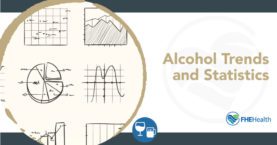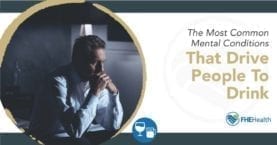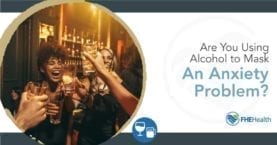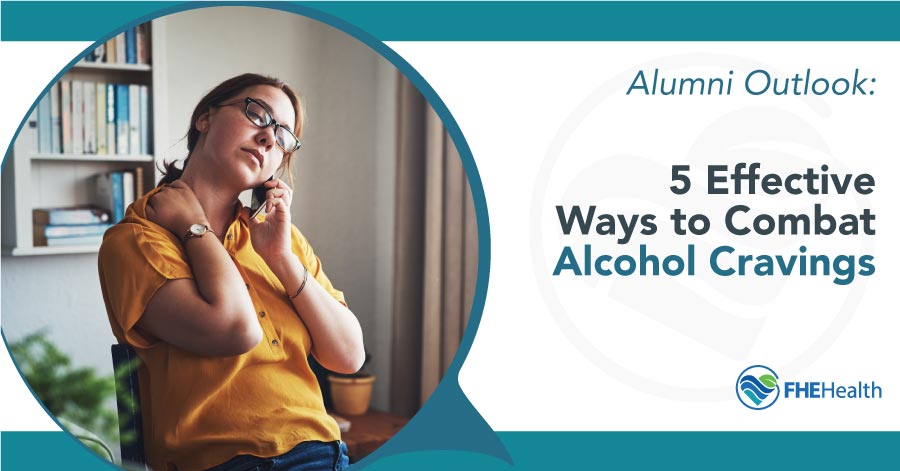
I remember when I first came down to South Florida and ventured into FHE Health, I was surrounded by addicts and alcoholics, but mostly IV drug users. Instantly, I was looking for ways to separate myself from being a part of. It wasn’t long before I was told that I would forever suffer from this spiritual, mental, and physical disease which meant that I couldn’t partake in consuming any mood or mind-altering substances. Yet again, I was looking for a way to set myself apart.
I managed to accumulate ten months sober before this insidious disease grabbed me by the throat once again. Thoroughly convinced I was not an alcoholic but simply a girl that had an opiate problem – I found myself drinking for the first time. Let me tell you about that experience. My first-night drinking after ten months of continuous sobriety, I was drinking like I never stopped drinking. I found myself bar-hopping in downtown Fort Lauderdale, making an absolute fool of myself, losing my phone, and waking up the following day with a massive hangover that only my beloved opiates could cure. I was off to the races.
Do you know what that relapse taught me? I am an alcoholic – through and through. Looking back, my brain, body, and soul were craving reprieve. Without a solution and zero defense against the first drink, I ran to the only solution I knew. I can see how the relapse happened long before the actual relapse. Fortunately, it was a short run. A.A. kind of ruined getting drunk for me. I wound up back in the rooms, yet again, and I was finally willing to accept that I was truly an alcoholic to my very core. That radical acceptance came with a tall order. I had only one thing to change, and that was everything.
When I stepped back into recovery, I’d love to tell you that I picked back up where I left off, but that would be a lie. I had to start over from square one. This meant that I had to accept that my way didn’t work. I went through the withdrawal process and then had to re-learn all of the healthy coping mechanisms and spiritual solutions all over again. Here are a few of the best ways I learned to combat alcohol cravings when I got sober almost five years ago.
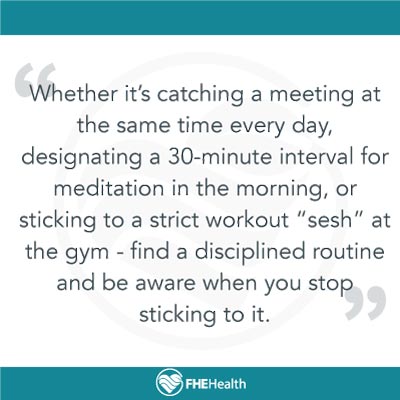 Look, there is a long-standing debate on the subject surrounding triggers. When it comes to early sobriety – there is no debate. Without a spiritual solution, we all experience triggers. Before you can equip yourself with the tools to combat your triggers, you must first identify them. What makes you crave an ice-cold beer? For me, it was lounging on the beach on a hot summer day. Weird, I know, but I think I craved the ability to get wasted much faster when I was dehydrated basking in the sun. Does this mean I avoided the beach? Absolutely not, but what I did was fill my ice cooler with my favorite non-alcoholic drinks – pineapple juice, coconut La Croix, and lots of snacks to accommodate the burning energy. Do you find yourself craving some hard liquor when you are feeling extra stressed? It might be a good idea to tap into healthy coping mechanisms such as working out, going for a walk, or even picking up the phone.
Look, there is a long-standing debate on the subject surrounding triggers. When it comes to early sobriety – there is no debate. Without a spiritual solution, we all experience triggers. Before you can equip yourself with the tools to combat your triggers, you must first identify them. What makes you crave an ice-cold beer? For me, it was lounging on the beach on a hot summer day. Weird, I know, but I think I craved the ability to get wasted much faster when I was dehydrated basking in the sun. Does this mean I avoided the beach? Absolutely not, but what I did was fill my ice cooler with my favorite non-alcoholic drinks – pineapple juice, coconut La Croix, and lots of snacks to accommodate the burning energy. Do you find yourself craving some hard liquor when you are feeling extra stressed? It might be a good idea to tap into healthy coping mechanisms such as working out, going for a walk, or even picking up the phone.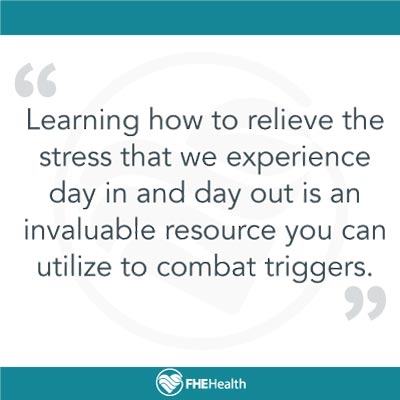 Stress is one of the leading causes for an early recovering alcoholic to experience the strong cravings to drink. I don’t know about you, but I do not do well under a lot of stress. When I first got sober, again, I was under an immense amount of stress. I was weeks away from being reconnected with my son and looking for a place to live. I remember feeling like the world was ending and my instant thought was to sabotage it all before all of the good things came my way. What a delusional and unhealthy way to think. I remember picking up the phone to call my therapist, and she gave me the assignment to go sit on the beach and write out every emotion I was feeling. She prompted me to take 15 minutes then to sit in the stillness and focus on my breathing. I remember rolling my eyes when she suggested I meditate in the middle of my freak out, but I did it anyway. Just like that, I did what I was told, and I left the beach feeling like the weight of the world had been lifted. Learning how to relieve the stress that we experience day in and day out is an invaluable resource you can utilize to combat triggers.
Stress is one of the leading causes for an early recovering alcoholic to experience the strong cravings to drink. I don’t know about you, but I do not do well under a lot of stress. When I first got sober, again, I was under an immense amount of stress. I was weeks away from being reconnected with my son and looking for a place to live. I remember feeling like the world was ending and my instant thought was to sabotage it all before all of the good things came my way. What a delusional and unhealthy way to think. I remember picking up the phone to call my therapist, and she gave me the assignment to go sit on the beach and write out every emotion I was feeling. She prompted me to take 15 minutes then to sit in the stillness and focus on my breathing. I remember rolling my eyes when she suggested I meditate in the middle of my freak out, but I did it anyway. Just like that, I did what I was told, and I left the beach feeling like the weight of the world had been lifted. Learning how to relieve the stress that we experience day in and day out is an invaluable resource you can utilize to combat triggers.